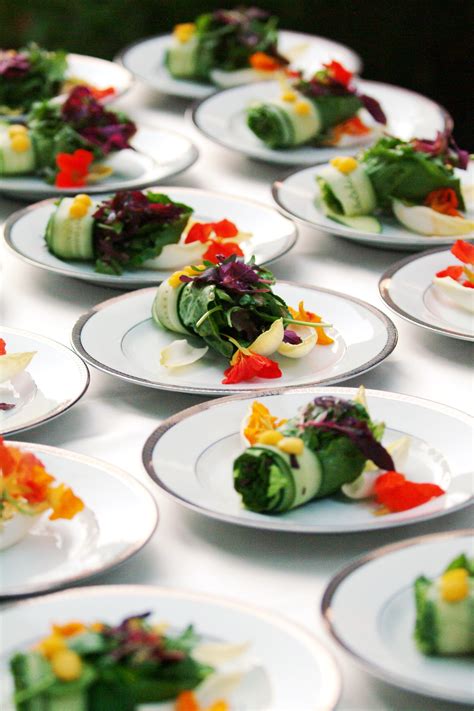In the world of formal dining, there's often confusion about the order of courses. One common question is whether salad comes before appetizers at a formal dinner. The answer might surprise you, but let's dive into the world of fine dining to find out.
The Traditional Formal Dinner Structure
A traditional formal dinner typically consists of several courses, each designed to delight the palate and showcase the culinary skills of the chef. The order of these courses is often determined by the type of cuisine, the occasion, and the cultural traditions of the host. Here's a general outline of a formal dinner structure:
- Cocktail hour or apéritif: Guests arrive and are offered a drink, usually a cocktail or a glass of wine, accompanied by small bites, such as canapés or hors d'oeuvres.
- Appetizer (or starter): A small, flavorful dish designed to awaken the appetite.
- Salad: A course consisting of mixed greens, vegetables, and sometimes proteins, served as a refreshing palate cleanser.
- Soup: A warm, comforting course that helps to transition to the main event.
- Entree (or main course): The centerpiece of the meal, usually a protein-based dish with accompanying sides.
- Intermezzo: A small, palate-cleansing course, often a sorbet or a fruit course, designed to refresh the palate before dessert.
- Dessert: The sweet finale of the meal.
- Mignardise: Small, sweet treats served with coffee or tea, such as petit fours or chocolates.
The Salad Conundrum
Now, back to the question at hand: does salad come before appetizers at a formal dinner? In most cases, the answer is no. Salad is typically served after the appetizer course. Here's why:
- Appetizers are meant to awaken the appetite: They're designed to be small, flavorful, and enticing, preparing the palate for the meal to come. Serving salad before appetizers might dilute the impact of the appetizer course.
- Salad is a palate cleanser: Serving salad after the appetizer course helps to refresh the palate and prepare it for the richer flavors of the entree.
However, there are some exceptions to this rule. In some cases, salad might be served as a part of the appetizer course, or it might be served as a separate course immediately after the appetizer. This is often the case in more modern or experimental culinary settings.
Modern Twists and Variations
While traditional formal dinners tend to follow a set structure, modern chefs and restaurateurs often experiment with different course orders and formats. Some restaurants might serve salad as a first course, followed by an appetizer, while others might combine the two courses into a single, more substantial dish.
In some cases, the salad course might be served as a composed salad, where the salad is a more substantial, carefully crafted dish, rather than a simple mixed green salad. This type of salad might be served as a main course or as a part of the appetizer course.
Conclusion
In summary, while there are some exceptions to the rule, salad typically comes after the appetizer course in a formal dinner setting. The traditional structure of a formal dinner is designed to guide the palate through a series of flavors and textures, with each course building upon the last. However, modern chefs and restaurateurs continue to innovate and experiment with different course orders and formats, so it's always exciting to see what's new and next in the world of fine dining.
What are your thoughts on the order of courses in a formal dinner? Share your experiences and opinions in the comments below!
Gallery of Formal Dinner Inspiration






FAQs
What is the traditional order of courses in a formal dinner?
+The traditional order of courses in a formal dinner is: cocktail hour or apéritif, appetizer, salad, soup, entree, intermezzo, dessert, and mignardise.
Can salad be served as a first course in a formal dinner?
+While traditional formal dinners typically serve salad after the appetizer course, some modern chefs and restaurateurs might serve salad as a first course or combine it with the appetizer course.
What is a composed salad, and how is it different from a traditional salad course?
+A composed salad is a more substantial, carefully crafted dish that might be served as a main course or as part of the appetizer course. Unlike a traditional salad course, which is often a simple mixed green salad, a composed salad is designed to be a more substantial and flavorful dish.
